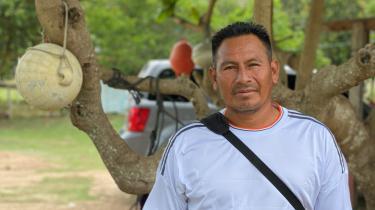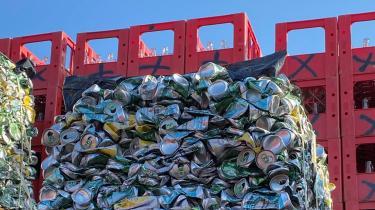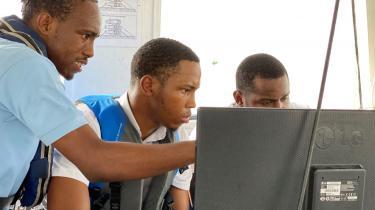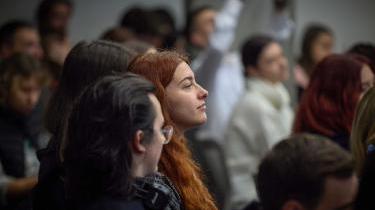Routine, project-level monitoring may not always be sufficient to be able to pull together a clear overview of the achievements of a broader portfolio of projects. Our approach to assessing and communicating the results of the UK Commonwealth 18-20 Fund used a bespoke participatory qualitative evaluation methodology based on most significant change and outcome harvesting to ‘surface’ higher-level results, combined with communications expertise to ensure these were effectively communicated to key audiences and users of the findings.
The 25th Commonwealth Heads of Government Meeting (CHOGM) hosted by the UK brought together leaders from Commonwealth countries who agreed an ambitious set of actions to build a Commonwealth that is fairer, more sustainable, more prosperous and more secure. The £70 million UK Commonwealth 18-20 Fund (18-20 Fund) was established by Her Majesty's Government (HMG) to support these initiatives and also to demonstrate the ability of the Commonwealth to lead the international agenda on key issues.
The 18-20 Fund supports a range of initiatives aimed at building a fairer, more sustainable, more prosperous and more secure Commonwealth
The 18-20 Fund was a strategic HMG initiative designed to help meet the commitments Commonwealth leaders made at the 25th CHOGM, deliver clear benefits to the Commonwealth and its member states and demonstrate the ability of the Commonwealth to lead the agenda on global issues, such as peace and security, climate change and human rights. It supported 25 projects in Commonwealth countries around the world across the themes of prosperity, security, fairness and sustainability.
The majority of the 18-20 Fund projects only had a short, two-year delivery timeframe. Consequently, their monitoring efforts mostly focused on capturing direct results and deliverables. This made it difficult for the Foreign and Commonwealth Office (FCO, now Foreign, Commonwealth & Development Office, FCDO) to understand what higher-level changes the projects had achieved or could be expected to achieve in the coming years, and communicate them to stakeholders and the general public in Commonwealth states, including the UK. Triple Line was commissioned in late 2019 to help the FCO better understand the high-level results achieved or likely to be achieved, and capture these in publication ready communication materials. The assignment focused on seven projects covering issues from trade facilitation, women in business, cybersecurity and online sexual exploitation to women’s roles in conflict resolution, marine plastic pollution and sustainable marine economies.
Triple Line brought together a small team of in-house monitoring, evaluation and learning (MEL) experts with expertise in participatory qualitative evaluation methods and experience in the technical areas covered by the selected 18-20 Fund projects, including gender and social inclusion, trade, economic development, conflict and peacebuilding, and climate change. Our team of MEL experts was also joined by Triple Line’s Communications Expert to ensure that the materials shared with the FCO were publication ready.
Triple Line worked closely with implementing partners and beneficiaries to identify higher-level results and present them in digestible case studies and results summaries. We were also tasked to evaluate the robustness of the evidence base supporting the identified results, make a light-touch assessment of the value for money of selected projects, and capture lessons to inform funding decisions on future programming in internal reports for FCO programme managers.
Involving the implementing organisations and FCO programme managers in identifying project results, and capturing the voices and experiences of beneficiaries in relation to these, were key priorities for the FCO. Therefore, we designed a bespoke participatory qualitative evaluation methodology and data collection tool based on the principles of most significant change and outcome harvesting methods.
A number of field visits were carried out to verify results reported by the projects, identify the most significant changes project beneficiaries and direct stakeholders had experienced in relation to the outcomes reported, and also to capture any other significant results implementing organisations were not aware of. The Triple Line team visited Sri Lanka, Nigeria, Guyana, Belize and Zambia. Visits to Ghana and Kenya were cancelled due to the Covid-19 pandemic, and in these countries data collection was conducted remotely. Following the field visit, the team presented the findings to the implementation team in-country or remotely to verify the findings, engage them in the analysis of data, and to support their learning.
The team produced 19 short (two-page) case studies, each focusing on a significant outcome achieved by one of the seven focus projects. The case studies were presented in a publication ready template and included high quality photographs taken by the Triple Line team during the field visits. The full case studies were accompanied by one-sentence and 300-word summaries – the former to be included in speeches of high-level officials and the latter in FCO publications.
For each project reviewed, the Triple Line team also produced a technical annex to be used by FCO programme managers. The annexes listed the significant results achieved or expected to be achieved under each outcome area covered by the case studies, assessed the strength of evidence supporting them and described their respective pathways of change.
The Triple Line assignment enabled the FCO to showcase what has been achieved during the lifetime of the 18-20 Fund to stakeholders in Commonwealth countries, and to demonstrate the fulfilment of UK commitments at CHOGM and value for money in its delivery. The case studies we prepared have been showcased in the UK Commonwealth Chair-In-Office Report 2018-2020. Findings of the assignment are also expected to inform decisions about future funding in the FCO.
Credit: title photos by Nora Loncsar | Triple Line UK
- Belizean fisherman who took part in the Boat to Boat campaign funded by the Commonwealth Litter Programme. Taken in Chunox Village, Belize for the review of the Commonwealth Litter Programme (CLiP) under the FCO contract Evaluative Outcome Reports of the Commonwealth 18-20 Fund.
- Returned soda cans at Bowen and Bowen Limited are being cut, packaged and sent to a recycling company. Taken in Belize City, Belize for the review of the Commonwealth Litter Programme (CLiP) under the FCO contract Evaluative Outcome Reports of the Commonwealth 18-20 Fund.
- Seabed mapping equipment in operation. Taken in Georgetown, Guyana for the review of the Commonwealth Marine Economies Programme under the FCO contract Evaluative Outcome Reports of the Commonwealth 18-20 Fund.





